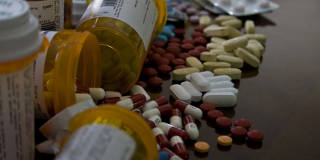When it comes to finding solutions to problems like the proliferation of fake or low-quality drugs, policymakers in the developing world are more likely to look abroad than at home. This is a big mistake, as local innovation is likely to be central to any successful effort to address the problem – and many others as well.
BOSTON – As we learn more about the threat from substandard and counterfeit medicines, it is becoming clear that it is a far greater problem than previously thought. It is also a scourge that is most acutely felt in developing countries, where fake and low-quality pharmaceuticals kill more than 500,000 people a year and affect millions more by contributing to the emergence of diseases that are resistant to existing treatments.
Compounding the problem is the approach taken by policymakers in the developing world, who are far more likely to look for solutions abroad than at home. This shortsightedness is a grave mistake that impedes innovation and progress. When it comes to tackling high-impact health challenges like the proliferation of fake or inferior drugs, local solutions and local innovations are not only likely to be central to any successful effort; they have the potential to provide benefits that go far beyond the scope of the original problem.
Throughout the developing world, but most evidently in Africa, two groups are interested in finding tools to combat the menace of bad drugs. One group, comprising students, entrepreneurs, and researchers, seeks solutions that are local, original, and tailored to the needs of their societies. Its members are quick to share ideas and eager to collaborate. While this group has produced some innovative solutions – for example, the Ghanaian entrepreneur Bright Simmons is using mobile technology to address the counterfeit-drug problem – many more passionate local inventors and entrepreneurs must get involved.

BOSTON – As we learn more about the threat from substandard and counterfeit medicines, it is becoming clear that it is a far greater problem than previously thought. It is also a scourge that is most acutely felt in developing countries, where fake and low-quality pharmaceuticals kill more than 500,000 people a year and affect millions more by contributing to the emergence of diseases that are resistant to existing treatments.
Compounding the problem is the approach taken by policymakers in the developing world, who are far more likely to look for solutions abroad than at home. This shortsightedness is a grave mistake that impedes innovation and progress. When it comes to tackling high-impact health challenges like the proliferation of fake or inferior drugs, local solutions and local innovations are not only likely to be central to any successful effort; they have the potential to provide benefits that go far beyond the scope of the original problem.
Throughout the developing world, but most evidently in Africa, two groups are interested in finding tools to combat the menace of bad drugs. One group, comprising students, entrepreneurs, and researchers, seeks solutions that are local, original, and tailored to the needs of their societies. Its members are quick to share ideas and eager to collaborate. While this group has produced some innovative solutions – for example, the Ghanaian entrepreneur Bright Simmons is using mobile technology to address the counterfeit-drug problem – many more passionate local inventors and entrepreneurs must get involved.